
Scuba diving depths and how deep can you go as an experienced scuba diver
The maximum dive depth for scuba diving increases as divers gain experience and advance their certification level. But this doesn’t necessarily mean experienced scuba divers always diver deeper dives. So what are common depths for experienced scuba divers?
The most common depths for experienced scuba divers is between 20 to 30 metres (66-98 feet). With experience and the right scuba diving certification, recreational scuba divers can go to 40 metres (131 feet) deep with PADI and 50 metres (164 feet) deep with BSAC. But diving isn’t only about depth.
The best way to do more diving is to book yourself on a scuba diving liveaboard. You can check the latest and best deals on liveaboards using the following window:
Who this article on experienced scuba diver depths is aimed at
I know the question about what are common depths for experienced scuba divers is asked quite frequently. But it’s usually asked by those looking to learn to scuba dive or beginner scuba divers.
If you are already an experience scuba diver you are unlikely to be asking this question, if that makes sense.
The reason to set this scene is so that the content of this article is appropriate to the audience. I am therefore assuming that you have either not dive before, or you have limited dives under your belt.
Having clarified who I think you are, let’s take a look at the importance of depth and scuba diving.
The importance of depth and scuba diving – Scuba diving depth factors
In an article about how deep you can dive with an open water certification, I clarify a few factors that are important when it comes to going deeper underwater.
Deep diving factors are as follows:
- The deeper you go, the more air you consume.
- When you consume more air as you go deeper, your air will run out more quickly.
- The deeper you dive the fast the build-up of nitrogen in your body and tissues.
- The more nitrogen you have in your body and tissues, the longer you need to decompress on your ascent.
- The deeper you go and the longer you spend at depth the more chance you have of going into a decompression stop dive scenario.
- Once you go beyond 30 metres (98 feet), the more chance there is of getting nitrogen narcosis.
- As you dive deeper you become heavier (or less buoyant). You therefore need to compensate for this with more air in your buoyancy control device.
All of the above factors are learnt in the theory of scuba diving when you first get certified. But there’s a big difference between reading about something vs experiencing it for real.
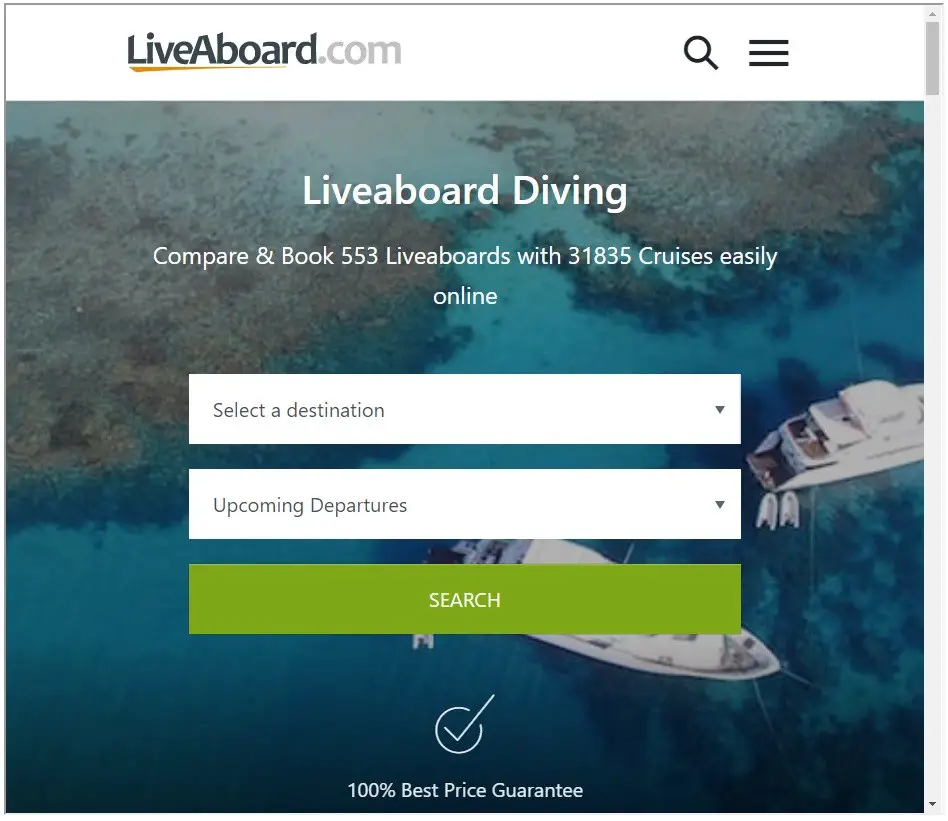
Experience in scuba diving gives confidence to go deeper
Many of the above deep diving factors are learnt from experience. For example, buoyancy control is mastered with practice. It’s important to be good at controlling your buoyancy. It’s also important to be totally comfortable with how your buoyancy control device works before you go too deep.
Secondly, the more experienced you are as a diver, the more relaxed you’ll be. The more relaxed you are the less air you will consume. As noted above, the deeper you go the more air you consume, which is due to the pressure changes.
If you are an anxious diver because you’re a beginner you will soon consume your air. This will be the case even at shallower depths, let alone when you go dive deeper.
For example, I remember diving in Plymouth in the UK with a couple of divers. One diver I recall was overly showing off before we started our dive. He was bragging about how many dives he’d done and how qualified he was.
But when we entered the water and dived to around 30 metres (98 feet), it soon unravelled. He panicked and ran out of air very quickly.
I’m still not entirely sure what happened and how much diving he really had done. But it proves my point. With him running low on air spoilt the dive for the rest of us. We all to the surface together after a short dive time of about 10 minutes.
How deep is too deep for diving?
When I say ‘too deep‘ I mean more than 18-20 metres (59-66 feet). See below for the depths of newly certified scuba divers.
Scuba diving is a dangerous sport and the statistics show that it’s even more dangerous than skydiving. This is why it’s so important to get trained properly and to take things slowly with scuba diving.
If you are new to scuba diving, please take this advice and slowly build your dive depths. There’s no need to go rushing into diving too deep too soon. There’s plenty of time to dive deeper.
But even then only dive deeper if there’s something at the depth you’ve chosen that interests you. Don’t dive deep just for the sake of it.
What are common depths for experienced scuba divers
It’s difficult to know what the most common depths are for experienced scuba divers, so it’s better to answer this question with what depths the various scuba diver qualifications can dive to.
Beginner scuba divers to open water or ocean divers
When beginner scuba divers are learning to dive their depth is usually restricted to less than 10 metres (33 feet). These first dives are normally conducted in a swimming pool or in very shallow ‘safe’ water.
When I say ‘safe’ I mean in an area of water which is free from currents and the water visibility is excellent. Somewhere in the Caribbean or in the Great Barrier Reef would be okay.
This is until you have gained your certified to scuba dive to the first level. For PADI this is Open Water Diver and for BSAC it is Ocean Diver.
- A PADI Open Water Diver can dive to 18 metres (59 feet).
- A BSAC Ocean Diver can dive to 20 metres (66 feet).
More experienced next level divers
As you gain more experience, either as a PADI diver, a BSAC diver or any of the other diving organisations, you are likely to take further qualifications. At the same time you will build up your dives and therefore your experience.
With experience you can dive deeper.
- With PADI the deepest recreational dive limit is 40 metres (131 feet).
- For BSAC the depth is 50 metres (164 feet).
To be able to dive to these depths you should have experienced at least 50 dives. Or I suggest 100 dives before diving beyond 40 metres.
But also you’ll need to hold the appropriate certification level.
- For BSAC Dive Leaders can dive to 50 metres (164 feet).
- The Deep Diver certification with PADI is required to dive to 40 metres (131 feet). But before the PADI Deep Diver course you first need to have a PADI Adventure Diver rating.
What are common depths for experienced scuba divers
Based upon the above information and from my experience with scuba diving of over 30 years, I’d say the average depth for experienced scuba divers is somewhere between 20-30 metres (66-98 feet).
The reason why it’s no deeper is because the majority of dive sites are best explored in shallower depths. For example, diving on coral reef systems in places like the Caribbean or The Great Barrier Reef the dives don’t tend to be very deep.
What is considered a deep dive?
As already mentioned, the limit for recreational scuba diving is between 40-50 metres (131-164 feet). However, in my opinion, which is the opinion held by many experienced scuba divers too, is a deep dive is considered to be a dive in excess of 30 meters (98 feet).
Once you exceed 30 metre, the no-decompression time limits reduce significantly. Your air consumption increases significantly. And you open yourself up to the possibility of nitrogen narcosis too.
I’ve been scuba diving for over 30 years and dived hundreds of dives. I have also dive deep to in excess of 50 metres (164 feet). But now I’m happy to dive to less than 30 metres and preferably to around 18-20 metres.
To me diving at these depths is safer and dives times are longer.
A random and related question that is asked in common with the question about experienced divers and how deep they dive is ‘Can you scuba dive to see the Titanic? ‘
Let me answer this question for those that want to know.
Can you scuba dive to see the Titanic?
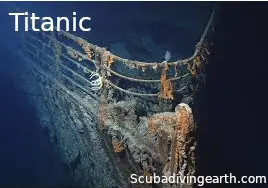
Some people who are looking to learn to scuba dive ask ‘can you scuba dive to see the Titanic‘.
Considering the Titanic sits at a depth of 3.8 kilometres (2.37 miles) or 3,810 metres (12,500 feet), you’ll probably understand now that after reading this article, no you can’t scuba dive to see the Titanic.
The only way to see the Titanic is by diving in a specially designed submarine instead.
I hope you enjoyed this article about what are common depths for experienced scuba divers
I’d love to hear from you. Tell us about your adventures of diving and snorkeling, in the comments below. Please also share your photos. Either from your underwater cameras or videos from your waterproof Gopro’s!
If this article hasn’t answered all of your questions. If you have more questions either about snorkeling or types of scuba diving (or specifically about what are common depths for experienced scuba divers), please comment below with your questions.
There will also be many more articles about scuba diving (and snorkeling) for you to read and learn about these fabulous sports.
Have fun and be safe!


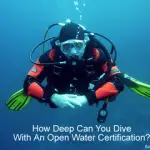
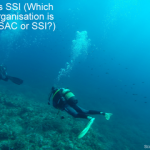
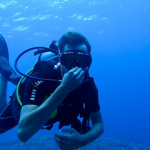
Thank you so much for sharing your knowledge. I am a 70 year old new diver and plan to work on my advanced certification. I can’t wait to hear more from you.
Thank you,
Cathy
Hi Cathy, thank you for your comment and good luck with progressing with your diver certification…where have you dived so far?